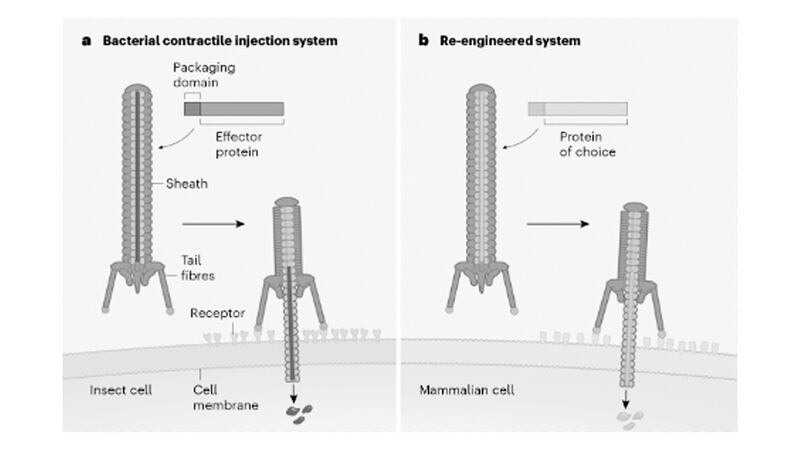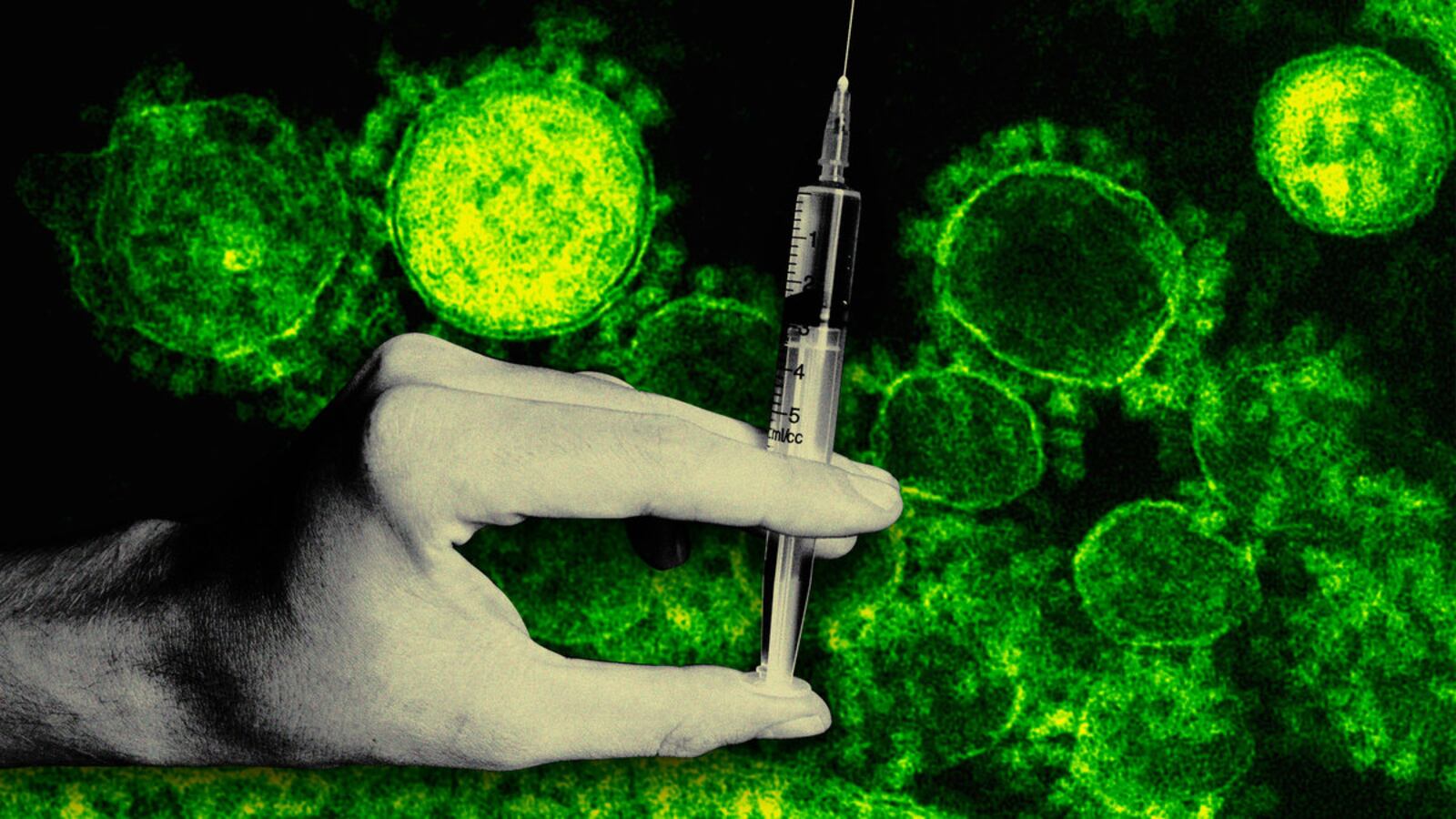It should go without saying by now: You should get your shots. However, your traditional syringe only goes so far. Sometimes, it’s helpful to get an even more precise inoculation on a cellular level. This type of injection could help pave the way for new, more effective biomedical treatments like cancer and gene therapy.
In a new study published Wednesday in the journal Nature, researchers developed a bacterial “syrigine” that’s capable of injecting proteins directly into cultured human and mouse cells. The technique utilizes the bacteria’s natural process of interacting with host cells to deliver a variety of different types of proteins into cells.
The study’s authors, who hail from MIT, specifically modified a bacterial protein that’s more typically found targeting insects called the Photorhabdus virulence cassette (PVC), which is named for the bacterium Photorhabdus asymbiotica. While this bacteria is deadly for different species of insect larvae and used as a pesticide, it’s relatively harmless in humans. This latest study builds off of past research that found that PVCs can be used to target and deliver proteins into non-human cells.

To develop the syringe, the researchers utilized AlphaFold, the powerful AI program from Google used to predict suitable protein structures. They then identified Photorhabdus—which typically targets insect cells—and re-engineered it in order to inject proteins into human cells in petri dishes.
Kreitz et al. / Nature“[We] demonstrated the application of PVCs as delivery tools in diverse contexts, such as in the specific killing of cancer cells or as mediators of genome editing, and we showed that the system operates as intended in insect cells, human cells, primary cells, and in live mice,” the authors wrote.
They added that PVCs are a “versatile class of programmable protein delivery tools that are well-suited for use in a variety of applications ranging from biocontrol to human gene therapy.”
To develop the syringe, the researchers utilized AlphaFold, the powerful AI program from Google used to predict suitable protein structures. They then identified Photorhabdus and re-engineered it in order to inject proteins into human cells in petri dishes. This suggests that it could one day be used to help deliver treatments directly into human cells. For example, proteins could be used as nanoscale carriers delivering antibodies into tumor cells.
The beauty about PVCs is both how versatile and efficient it is. Not only can it be customized depending on the kind of cargo or treatment it’ll deliver, but the Nature study found that it can target human and mice cells with “efficiencies approaching 100 percent.”
So we could see the rise of bacteria syringes being used as a part of crucial therapies one day. Unfortunately, the rest of us will still have to deal with the dread of needles for our vaccines.





